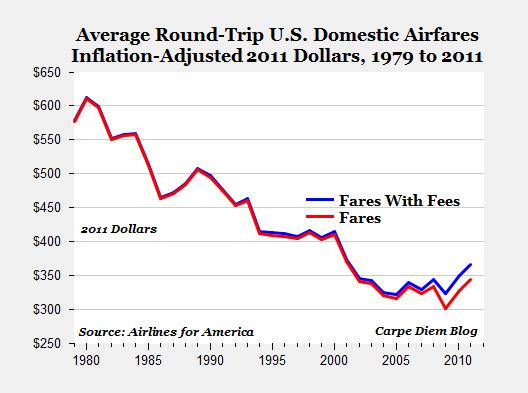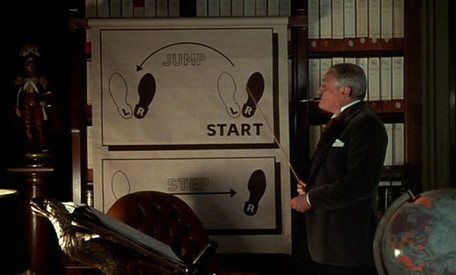The Bureaucracy Event Horizon
While reading about the partisan Rubicon crossed by the League of Women Voters a few days ago, I remembered that I’d received something noteworthy from them in the mail. I dug through my recycling, and found a “national opinion survey”. I actually do read these things; if they look like they’re serious, I fill them out. This one was decidedly non-serious.
In your opinion, what is the best way to limit the impact of special interest money on the political process? Please choose one answer only.
- Public financing of congressional elections.
- Lower limits on the amount individuals can donate to candidates.
- Better disclosure requirements for all political contributions.
- Other
The first thing that jumps out at me is that the question talks about special interests, but two of the answers directly impact individuals. The second answer mentions individuals specifically, and for the third answer, it’s the average person, who expects privacy, who is most likely to be discouraged by the possibility that their donation to Sarah Palin or Barack Obama will be available for their neighbors to see.
The second, of course, is that each of those answers, besides being very close to the same thing, are all about increasing government power and increasing the number of government regulations. The reason that businesses and prominent individuals have to lobby legislatures and bureaucracies is because government has become so big. As the silicon valley era of startups has learned, if you don’t have a lobbyist your competitors who do will have a competitive advantage. Legislatures, and the bureaucracies that legislatures create, have grown so big that businesses cannot afford to ignore them and just focus on doing better business.
Every day, state governments and the federal government are making laws and regulations that make it harder for businesses to succeed. Most businesses don’t want to hire lobbyists. They want to focus on their products. It was big news six years ago when Google hired lobbyists to influence Washington. They had to:
It seems that policymaking and regulatory activity in Washington, D.C. affect Google and our users more every day. It’s important to be involved—to participate in the policy process and contribute to the debates that inform it. So we’ve opened up a shop there.
They tried to frame it positively, but the fact is they had to; the government was mucking around in their core business. And wherever the government gets involved, businesses big enough to afford it try to influence it in their favor and against their competitors. Thus, Microsoft lobbied to keep Google and Yahoo from forming an advertising deal, and Google has been increasing its lobbying budget.
The obvious solution? Reduce the size and power of the federal bureaucracy, and businesses will be less inclined to spend their money on lobbying. That solution isn’t even part of the survey. Non-bureaucratic solutions just get ignored; they often don’t even figure into our statistics. They’re just “other”.
But, as government grows, the number of lobbyists also grow. How many lobbyists are there now? How much would they fight against any attempts to reduce their influence? Every single one of them risks the unemployment line if lobbyists become unnecessary.
Some businesses build their business by lobbying for more regulations. You can see it in the fight to extend sales taxes to online sales. At least one company lobbying for the change stands to create an entire new bureaucratic navigation industry if they succeed, as suddenly every business that sells online must conform to sales tax laws from hundreds, if not thousands, of municipalities. Even if you decide that online sales taxes are a good idea, there’s a simple solution—tax based on where the seller is, not where the purchaser is—but the simple solution won’t create a new, exploitable, bureaucracy.
The invisibility of choice
The Texas House recently passed a bill allowing speed limits up to 85 miles per hour where engineering guidelines show such speeds are appropriate. Writing about this, Jim Forsyth said:
Eighty-five miles per hour would be the highest posted speed limit in the United States and the second-highest posted speed limit in the world, according to the European auto rental firm Rhino Car Hire. A speed of 140 kilometers per hour, or about 86 mph, is posted on some motorways in Poland.
From a safety perspective, who cares about the highest posted speed limit? Believe it or not, there are some areas that have no speed limit. If you include places with no speed limits, 85 mph would be at best the fourth-highest speed limit. And that’s only if you assume that 52% of German autobahns are only one road. The Isle of Man has no speed limit on its rural roads, either; despite this, motorists continue to drive the safe speed for those roads.
But you can’t assign a number to no number at all, so places where the government just gets out of the way are invisible. This is true everywhere it happens. Government, and the people who call for it in the news, always call for doing something. Letting people live their lives falls under “other”. It’s not a viable option; it’s throwing away your vote to even mention it on a survey.
The event horizon
The term “event horizon” comes from astronomy and physics. Black holes have gravity that’s so strong, it even pulls in light. We don’t normally think of light as something affected by gravity, but it is, and black holes will bend light that travels near them. If light gets close enough to the black hole, the light doesn’t just bend, it gets sucked into the black hole. That distance is the event horizon. Anything within that distance is unknown to us, because anything that would tell us what happened can’t escape the black hole.
Less seriously:
Many years ago this was a thriving, happy planet—people, cities, shops, a normal world. Except that on the high streets of these cities there were slightly more shoe shops than one might have thought necessary. And slowly, insidiously, the numbers of these shoe shops were increasing. It’s a well-known economic phenomenon but tragic to see it in operation, for the more shoe shops there were, the more shoes they had to make and the worse and more unwearable they became. And the worse they were to wear, the more people had to buy to keep themselves shod, and the more the shops proliferated, until the whole economy of the place passed what I believe is termed the Shoe Event Horizon, and it became no longer economically possible to build anything other than shoe shops. Result—collapse, ruin, and famine. — Douglas Adams (The Restaurant at the End of the Universe)
Unless someone remembers that you don’t buy shoes for the sake of buying shoes, but rather because you want to walk somewhere, the planet is doomed. Bureaucracies forget that they exist to solve a problem; if they don’t solve that problem, they should not exist. Instead, they exist for the sake of making more bureaucracy. In the private sector, a business that forgets what its business is will fall to a competitor that does not forget. In that respect, the Shoe Event Horizon is silly: at some point, some cobbler will make a name by making higher quality shoes. But government programs fit the model exactly. They don’t have to compete, and so if they forget their mission, no one is willing to put them out of business. Legislators are very resistant to putting a bunch of government workers out of work.
Unemployment figures themselves now depend partly on government positions—as if government paychecks were some sort of perpetual motion machine, paying for themselves. But there is no such thing as a self-funded government job. Government jobs require private sector jobs to pay for them, either by taxing private sector incomes or forbidding private sector competition.
I’ve got an acquaintance who works for the Civil Service in Britain. I don’t know exactly what he does, but as is often the case with government bureaucracies the bureaucracy gets in the way of whatever it is:
It would be so nice to give people things they want rather than tell them they can’t have the things they actually need to do their jobs and live their family lives. Which is what working in the Poor Bloody Bureaucracy of the Civil Service often boils down to because there isn’t another government department they can go to if this one lets them down.
Emphasis mine: there is no competitor to eat the government bureaucracy’s lunch if the bureaucracy doesn’t meet demand for its services or product.
Why is this an event horizon, however? Why don’t government bureaucracies sit still in their incompetence? Every government program has a loophole. The bigger the program, the more loopholes it has, and the more red tape that needs to be navigated to deal with it. This creates industries that thrive on navigating loopholes and red tape.
If there’s a loophole, someone’s going to drive a truck through it, and the people in the truck will get paid better than the people under it. — Scott Adams (How to Get a Real Education)
There are several event horizons we cross as government gets bigger. One of those is when people who exploit government programs are more successful than people who don’t. Their success is at the expense of making a better product. Businesses end up having to spend resources on things that have nothing to do with their business, just to navigate government.
I recently wrote about Tesla Motors being fined for not having their car tested for direct emissions. Tesla makes all-electric vehicles; the vehicles have no emissions. So, imagine that you are in this company’s position. You’ve got the funds to hire one new position (you would have had funds for two, but you had to downsize your plans after paying that fine), and you’ve got two proposals on your desk. One will hire a new engineer, an expert in battery design, because you know that to make your cars more successful, you need to push battery technology forward. You’ve even got someone in mind for this new position, Pacific Tech graduate Chris Knight, who has already revolutionized power delivery in the laser industry•. This position will produce innovative new technologies for your vehicle line.
Your second choice is an expert in regulation conformance. You’ve got someone in mind for this position, too, a twenty-year executive at General Motors, who has years of experience navigating federal and state red tape. In order to avoid new hundred-thousand-dollar fines, this position will have veto authority over any new technologies proposed for your vehicle line.
Which position will you approve? And what does that do for the state of innovation in your industry?
Those decisions get made at every level of business. One event horizon is that government bureaucracies cost you whether you take part in them or not. Democrats like to berate people who complain about government services and then accept the services they’re complaining about. But complaining about a service doesn’t mean you don’t have to pay for it. The taxes that pay for these services reduce the amount of money you have, which reduces your ability to bypass the inferior government plan. If I had the money that I’ve given to social security, medicare, and my government/employer-sponsored health care plan, I’d have a much better retirement future and much better health care. But I don’t, and that money is gone and continues to disappear. If I try to stop paying social security, I’ll get a visit from the IRS.
There are a lot of people who look at the money they’ve put into social security and are saying, “now I want mine”. If they could vote to reform social security after they’re dead, they might. But they’re not going to vote to reform it now.
The ultimate lobbyists
Government has become the ultimate special-interest lobby, always arguing for more government. — Orson Swindle (Should Policymakers Apply a Depression-Era Tax System to the Economy of the 21st Century?)
I wrote in Laundering votes and money that California’s bureaucracy consists of nearly 3% of it’s population. That’s a significant voting bloc. People within the bureaucracy are much more likely to support further bureaucracy than they are to support cutting it, whether it’s cutting down on government red tape or government micromanagement or any of the other ways government bureaucracies stand athwart progress and a healthy economy.
However, the problem is much worse than that. Bureaucracies create the need for navigating red tape, and so support industries rise to help businesses and people navigate the bureaucracies. Take a look at how many people your employer has to pay just to navigate government regulations. Those people are also within the bureacratic event horizon. Those support industries are another barrier to ending the bureaucracy.
Think about simplifying taxes. It isn’t just the IRS that would be out of a job if taxes were just a simple rate with no deductions. Most of the tax experts at H&R block would need to find other work as well. According to the GAO, it costs 20% of taxes to pay taxes.1
Similar support industries rise up around every regulation that government places on us. For most of us, it’s taxes, but our employer has to hire many more experts to navigate government bureaucracies. That’s a huge cost that could be put towards higher wages, more hires, higher quality products, and lower prices.
The support industries around government bureaucracies (and often, the bureaucracies themselves) are broken windows. All of that money and time spent on paying taxes, for example, is make-work. It is money and time that could be spent doing something productive.
The problem is, those support industries become part of the gravity of government, and expand the bureaucracy event horizon: they will lobby not just to keep unnecessary bureaucracies, but to keep them unnecessarily complex. If computer technicians were to lobby Apple to make their personal computers more difficult to use, to not improve the ease of use of their products, they’d get laughed at and ignored. But tax professionals can and do lobby the government to maintain the need for tax professionals to figure taxes. And unlike a computer company, government bureaucracies don’t go out of business if they make their “product” harder to use.
So we end up with government programs lobbying the government to spend more money on themselves; and we have outsiders—a support industry and people who just want their own back—lobbying to keep the bureaucracy going at least for a little longer. We find it difficult to imagine a world where the program doesn’t exist at all, where government just stays out of our way. At some point we reach a bureaucracy event horizon, and it becomes impossible to reform bad government programs.
And then we complain that businesses need to hire lobbyists to navigate and influence gigantic government bureaucracies.
- March 26, 2025: Five Weekly Accomplishments
-
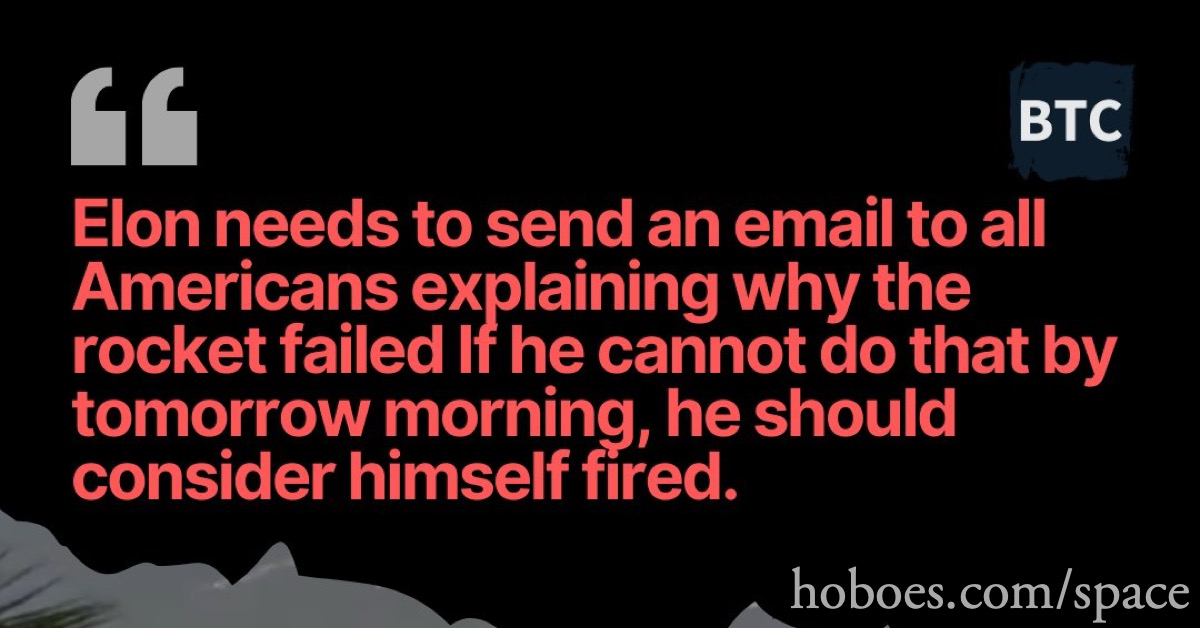
As it turns out, when this was posted he’d already sent that email a few days earlier.
I have to admit to being somewhat surprised by the backlash against government employees being requested to list five accomplishments from their past week. A recent example is a meme demanding that:
Elon needs to send an email to all Americans explaining why the rocket failed If he cannot do that by tomorrow morning, he should consider himself fired.
At the time this was posted, Musk had already sent this email. You could easily run a search on “why did the Space X rocket fail?” and get back several news stories each with the same quotes from Space X. It very clearly had been sent through the various public relations services that generate, among other things, emails to journalists for delivering news to the American people.
And, I’d add, learning the reasons the rocket failed were accomplishments. Were Space X subject to this rule (which it may well be), that launch easily resulted in five accomplishments on its own for every employee involved.
The response was that “a list isn’t the whole picture” and “I… would struggle to list five things because that’s how jobs are sometimes.”
I used to work at a private university. Due to both weird funding mechanisms and just the kind of people who get into management even at private colleges, higher education employment is a very weird amalgam of private business and government work. Our combination of information silos, funding silos, dysfunctional management, and a complete ignorance of customers was very reminiscent of Mike Judge’s• wonderful Office Space•.
Including the paperwork involved. I have very little sympathy with people who are unwilling to list five things accomplished in the last week in a simple email. While I’ve never quite had to deal with TPS report cover sheets I would have jumped at the chance to replace our six-page job evaluations with “Please reply to this email with approx. 5 bullets of what you accomplished last week”.
- September 25, 2024: The left’s hatred of business is a lie
-
A couple of days ago I heard a clip from a Larry Kudlow interview in which he said that the reason the economy is so bad under the Biden/Harris administration is because “the left hates businesses.” This is completely backward. It’s another example of conservatives buying into, instead of rejecting, the institutional left’s opposite-talk, their lying with fake terms and fake outrage. The left doesn’t hate businesses. The left hates you and me.
The left is fully aware that their regulations cause businesses to raise prices, and the left is fully aware that it is you and I who pay those prices. They hate us, and they love that they can use left-friendly monopolies to screw us over.
In general, the Left loves businesses, if those businesses are run in a manner easily coopted by government. They love businesses that are run as conglomerate-by-committee. They love businesses that are run by fellow members of the beltway crowd. They especially love businesses that are run like the left runs government, although these tend to fail spectacularly the more they emulate the left.
They loved Twitter, when it was run by committee. They hated it when Elon Musk took over. The businesses they hate are businesses run by individuals. Because they don’t hate businesses. They hate people.
Everything they do that the right claims is “bad for business” isn’t bad for big businesses. It’s bad for individuals running a business—and it’s bad for individuals who no longer have the choice of buying from a local, responsive business.
It’s great for well-connected national and global businesses run by disconnected beltway billionaires and bureaucracies. It kills their local competition. It monopolizes their customers. Amazon is not going to starve from Biden’s or Harris’s “anti-business” policies. If Disney dies it won’t be because of government policies but because they act like the left. And none of the board members will suffer from its death. Only Disney fans and retirees invested in Disney, often involuntarily via big, monopolizing investment firms run by the left’s beltway billionaires.
This is the regressivism of the left: to return to a time when only the rich could afford to be businessmen. When only the rich could afford to be investors.
- July 31, 2024: “Jobs Americans won’t do” is pure BS
-

I don’t think you can get more emblematic of the modern beltway class than this notion that US troops should be sent overseas and should not protect US borders. It fires on all cylinders: What they used to call imperialism is now the only moral use for the army. And that farm and industrial workers should make less money by undercutting their jobs with people coming here illegally and forcing those jobs overseas.
They denigrate Americans as lazy and snobbish for not wanting to do the jobs that they themselves have made it almost impossible to hire Americans for.
My mom used to do some of those “jobs Americans won’t do”, which in our farm-based area meant picking asparagus and other fruit and vegetables. Many women did that to pick up extra money to improve their families’ incomes and save for their kids’ education.
She did not stop doing it because she didn’t want to do those jobs. I’m pretty she never wanted to do those jobs, but she did them anyway. She, along with the other women, stopped doing it because the farms stopped hiring them.
She wasn’t alone. An Ace of Spades commenter writing under the nom de plume notsothoreau wrote about their experience in farm work:
I used to work cherry harvest. Typically you work 10 hour days straight for about 21 days. When I started, high school kids could still work there. Then Washington passed a law that kids under 18 could only work up to 60 hours a week and there were also limits on the hours in the day they could work. It wasn’t worth it to the company and they stopped hiring them.
The farms stopped hiring people like my mom because it became progressively more expensive to hire part-time workers due to the regulatory burden per employee. They stopped hiring people like “notsothoreau” because they were no longer allowed to hire high school kids for short bursts of long hours—arguably something teenagers are well-suited for, and which many prefer over longer-term commitments.
The paperwork and other added regulatory expenses made it too expensive to hire the Americans who wanted to do these jobs. The paperwork for hiring someone here illegally is by necessity a lot less than for hiring citizens and legal immigrants.
- May 5, 2021: Two weeks, and the madness of experts
-

There’s an old saying about people who say one thing, and act like they believe the opposite. They obviously don’t believe their own words. They might be lying, but they might also merely believe that only other people ought to follow the rules they make.
They might even believe that everyone, including themselves, should follow the rules—but only in the abstract. Everyone else is always abstract, but they easily come up with specific reasons why they, themselves, should be exempt in this particular case. They have Reasons for not following their own rules, while not recognizing that everyone else will also have Reasons.
This blindness is not uncommon among people in general; the problem with government administrators and government experts is that they actually get to make rules that only other people have to follow. Government “experts” are still trying to bring back the 55 mph speed limit, and repeal the 85th percentile rule1, despite all of the hard evidence about how many lives were lost the last time we tried that. Of course, when they’re on the road, they’ll have good Reasons for exceeding those limits, just like they did the last time around.
All of the media talking heads and politicians who say that masks help, act like they believe the opposite. If they took masks seriously, they wouldn’t take their masks off as soon as they thought the camera was off. They wouldn’t require people to wear the same old contaminated mask they’ve been wearing all day—or all week or all month. They’d require a new mask for every establishment and every event, and require new masks at regular intervals during each event.
They’d also require new masks whenever someone touches their mask.
That’s what people who take masks seriously do. If you know any surgeons, ask them how often they use the mask from one surgery during a different surgery. Ask them how they dispose of their masks. They never re-use them. Disposal is a serious business. Ideally, they’re changing masks every two hours or less. And they don’t take the mask out to their car, take it off with their bare hands, and lay it aside on the seat next to the groceries until their next surgery.
- May 27, 2020: Growth does not pay for itself
-
When politicians want to create new government programs, they tell us that economies of scale mean that one government monopoly will be higher quality and less expensive than hundreds of personal choices.
And yet, taxes don’t go down when population goes up. Why not?
Well, when politicians want more money for existing government monopolies, they tell us that growth does not pay for itself.
These cannot both be true.
If economies of scale make government programs more efficient than letting people choose what services they want, from whom, at what price, then having more people means that those services will be less expensive. That’s what economies of scale means. It is the entire point of handing most such services over to local, state, or federal agencies.
But when it comes time to raise taxes, we’re told that “growth doesn’t pay for itself”. That’s literally what Mayor Craig Morgan said at the September 26, 2019 Round Rock City Council Meeting. They voted to raise taxes by the maximum allowed by law without asking permission from residents. Texas has a new law that drops that limit from 8% to 3% for cities, and the council wanted to get in under the deadline.
Mayor Morgan was, in fact, correct—with government programs, which are a monopoly, growth doesn’t pay for itself. It doesn’t have to. In any sane institution, of course growth pays for itself. If it didn’t, a 12-pack of Coca Cola would cost more than 12 single cans. An airline ticket across the United States, which cost $200 one way in 1978, would be over $5,000 today taking inflation and increased air travel into account.1 But it doesn’t, because growth, in an environment of competition for customers, does pay for itself, and more: even just taking into account inflation, $800 one-way would buy a pretty comfortable trip today.
Any organization that doesn’t see that will go out of business in favor of their competitors who do see that.
- December 4, 2019: Epstein didn’t kill himself, and other tales of the swamp
-

You’ve probably heard all of the unbelievable coincidences surrounding Jeffrey Epstein’s suicide. Cameras not working, inexplicably quick removal from suicide watch1, guards sleeping on the job, fellow inmate removed.
It’s not surprising that people are creating a conspiracy theory around it. It’s incomprehensible that any organization could be that incompetent. In a sense, conspiracy theories like this are an example of how much trust we still have in government. We trust it to be basically competent, and therefore assume there must have been a deeper reason for the apparent screwup.
The problem, however, is that this was a government institution, and government institutions are that incompetent every day. It’s standard operating procedure for government programs. It’s what government bureaucrats do to all of us. There is nothing unbelievable about it. The same forces that make DMV offices into a shining example of government competency, and that encourage VA officials to falsify documents with no repercussions—except for the dead veterans—also work on prisons.2
The common rejoinder to the incompetence theory is that nobody’s been fired for incompetence. But that also is common practice among government organizations. It’s only in the private sector3 that employees are fired for gross incompetence. In government jobs, they’re promoted, or sidelined but continue to collect paychecks and benefits.4
One of many reasons that conspiracy theories are so compelling is that it’s always more comfortable to believe in a competent government than an incompetent one. But government bureaucracies are never competent over the long-term. At best, they don’t become blatantly corrupt. Given the necessity of government bureaucracy, we’d prefer that they be DMVs rather than VAs.
- January 16, 2019: Why don’t taxes go down when population goes up?
-
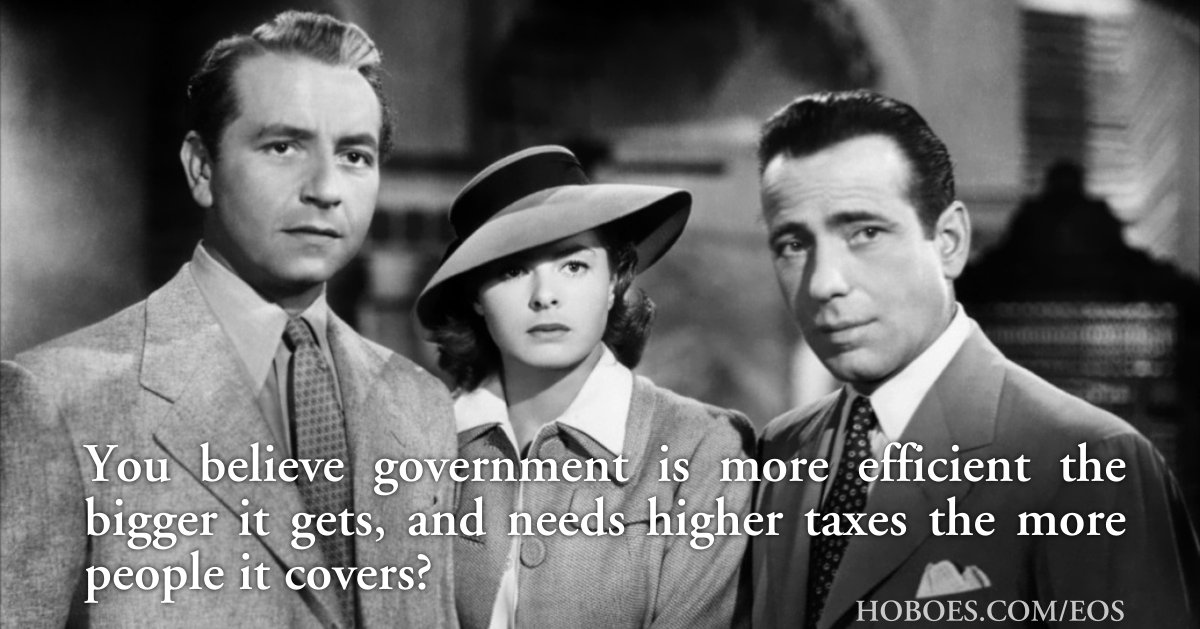
In the September 2017 Round Rock, Texas, Newsflash1, there’s an article about the property tax increase, and includes the very common rationale that the increased rate “is for additional operating costs to keep up with rising costs and growth.”
Similarly, Mitchell Schnurman writes in last Tuesday’s Dallas Morning News that “capping tax revenue poses a major threat to fast-growing cities that must invest in schools, roads, and other infrastructure.”
And in our local Community Impact newsletter, Kirby Killough, Editor, “explains” taxes2 in Why do school districts hold bond election?:
On Nov. 6 voters will consider bond proposals for Round Rock and Pflugerville ISDs. Both bonds are designed to address the strain placed on the districts by fast-paced growth in the area and provide improvements for existing facilities and equipment.
…
Districts that are experiencing rapid growth, such as Round Rock, Pflugerville and Hutto ISDs, may need to hold bond elections more often to build enough facilities to keep pace with growing student enrollments.
All cities need to invest in schools, roads, and other infrastructure. Small, large, fast-growing, slow-growing, and even shrinking.
But Round Rock and Dallas, like most Texas towns, get their budget from two sources: sales tax, and property tax. Both of these rise with inflation. Both of these rise with growth irrespective of inflation. As more people come in, more houses are built and more things are purchased.
- September 12, 2018: Small towns, big government
-

Last week’s post reminded me about something I’ve been wanting to say about dying small towns. Every once in a while the argument comes up that if there are no jobs in your town, you should move to where there are jobs. And if your small town has no jobs, then it should die.
This is grossly hypocritical when it comes from modern pundits and politicians. It is a tacit acceptance of big, intrusive government. It is government regulations that mean fewer and fewer jobs in small towns. It is government mandates that make it deadly for businesses to hire people nearby even though businesses would by far prefer nearer workers to overseas workers. The reason small towns increasingly resemble inner cities is because the same problem affects both: an inability to overcome the barriers that Washington (and cities run by Democrats) put up against starting and running small businesses. Small towns were more resilient because they were further from the nutty regulations of Democrat-run cities, but the way federal regulations force small-town businesses to close is the same as how city regulations forced inner-city businesses to close.
It is critical to realize that this affects all small businesses, not just small businesses in small towns and dangerous neighborhoods. The longer the problem goes on, the closer we get to the kind of science fiction dystopia of big-business arcologies and monolithic multinationals.
The more expensive and difficult we make it to start a business, the more this becomes only feasible in cities—and only for those with the resources to start big. The more expensive and difficult it is to start a business, the more customers you need to make it profitable, and the more bureaucracy navigators you need to literally keep yourself out of jail. Both customers and extraneous expertise are more common in cities than out of them.
People should not have to leave their home towns to start businesses that create jobs. But if they want to keep from breaking the complex laws that surround running a business, they need to hire tax experts, legal experts, human resource experts, and health coverage experts. And probably more experts I’m not even thinking of.
- September 5, 2018: How the left bribes big business
-

The left often seems to assume that big businesses are a natural progression from small businesses, that big businesses naturally and easily outweigh their small rivals. This is mostly bullshit. Big businesses are almost always slow, unwieldy dinosaurs. They tend to be slow to respond to changes in what customers want while smaller businesses are nimble. They tend to be unresponsive to customer problems because management is often nowhere near the front lines of the business while smaller businesses, with management that is literally right with the customer, forge deeper and more meaningful relationships with customers and communities.
Big businesses are notoriously bad at staying in business once they build a bureaucratic wall between management and customer. The “first mover advantage” is mostly a myth, made possible because no one remembers the many failures that preceded the first long-term success. For the computer industry, read Fire in the Valley for a long litany of first-mover failures.
Big businesses have one advantage, money. This lets them make more mistakes and still survive (why IBM is still around). It also allows them to take advantage of economies of scale: better prices per part by buying more, applying fixed manufacturing costs over more product, and applying fixed selling costs (such as advertising) over more product. But that tends to be swamped by their many disadvantages which cause them to spend that advantage on the wrong thing. For example, the Atari graveyard•, and the big three auto manufacturers selling big cars long after consumers had said loud and clear that they want smaller cars.
Getting great prices on all the parts doesn’t matter if the whole is something nobody wants and the administration is too isolated from the customer base to respond effectively.
There are three fields where bigger businesses do have an advantage over smaller businesses:
- July 17, 2017: Bipartisanship in the defense of big government
-
Think about everything Democrats have been saying about Trump since he became the nominee. Why would they want to give the Trump White House more power?
I’ve long been critical of both Republicans and Democrats for not looking for common ground to advance their own views of freedom in the United States. There are always issues of commonality, or at least issues that the other side’s rhetoric makes it impossible to oppose, that could be introduced by the party that is out of power.
When President Clinton claimed that he was the victim of an out-of-control prosecutor, Republicans should have introduced legislation protecting people outside the beltway from out-of-control prosecutors.
When Democrats claimed to be worried about a President Trump’s executive overreach, they should have announced that they would support any Supreme Court Justice on Trump’s pre-election list: all of them would be strong opponents of an imperial presidency.
In my opinion, Donald Trump is mostly the fault of the political establishment, for failing to take advantage of opportunities to advance freedom in a bipartisan manner. Whoever is out of power complains about their power-hungry opposition, and whoever is in power uses that power. When politicians fail to live up to their campaign promises, voters will turn to non-politicians.
Democrats have decided, in the face of Trump, to continue blindly opposing literally everything he does, even things they called for earlier, such as firing James Comey.
But of course there is one policy they’re willing to work with Republicans on: increasing the power of an imperial presidency.
Why, after complaining that Trump is using the power of the White House to oppress Democrats, would Democrats introduce a resolution that makes it easier for Trump to act unilaterally? Why would they do this ahead of the 2018 elections, an off-year that traditionally goes in their favor?
- April 5, 2017: Toward a permanent political class
-
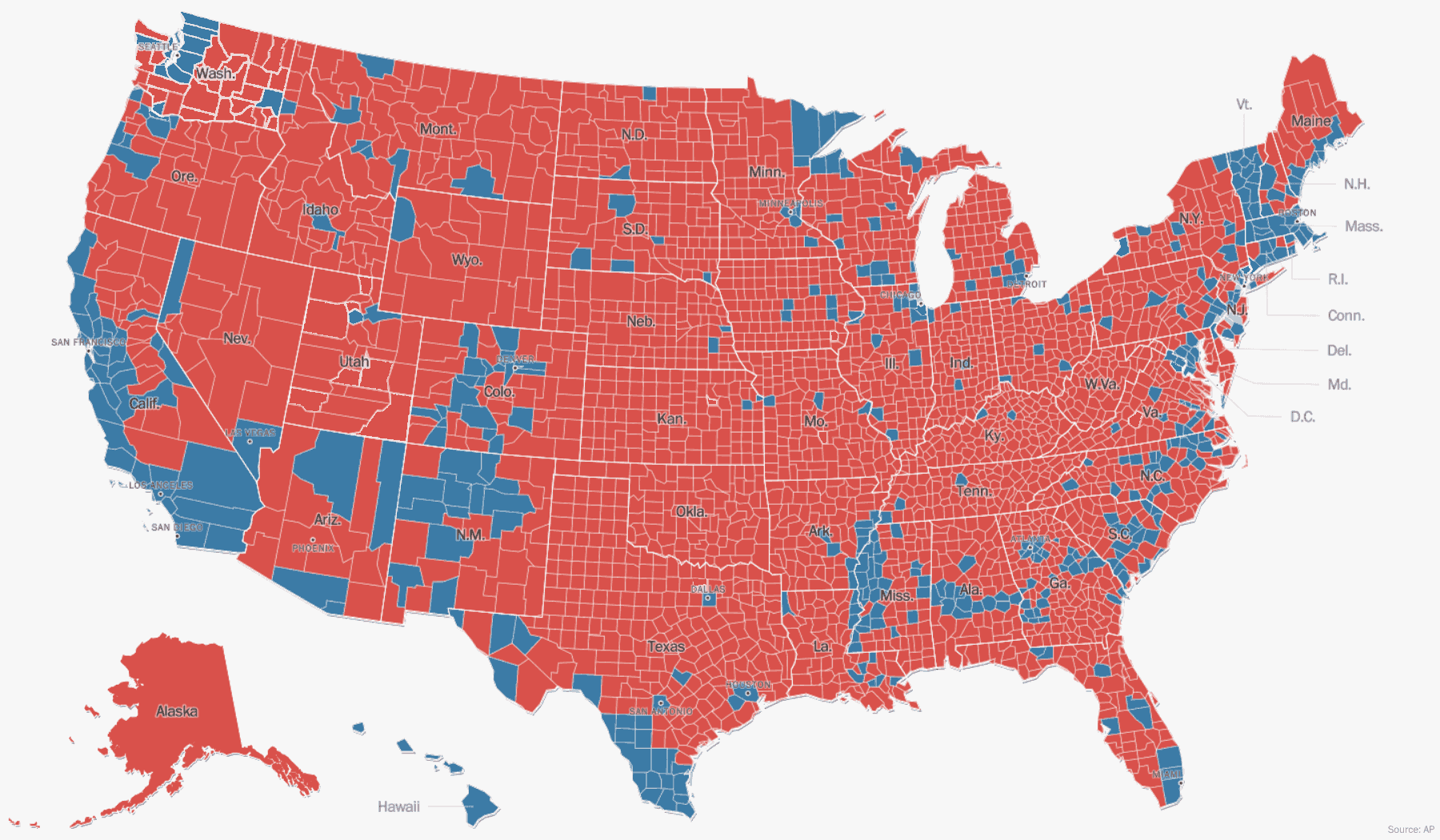
Why the beltway class would prefer restricting who gets to win office… and probably who gets to vote as well.
Literary agent Janet Reid recently wrote complaining that (a) people who are not agents keep trying to fix how writers find agents, and (b) people who are not politicians keep trying to get into political office.
Trump, of course, is exhibit A. His administration is the rest of the alphabet.
This seems wrong to me on multiple levels. Novels are by authors, not by agents. Nor are they purchased by agents.1 Novels are purchased by readers.2 Do I want an agent who knows what she’s doing? Yes. Do I want agents in general to run the system by which I write and find readers, and by which I find authors to read? Do I want agents to create the laws by which books are written and distributed? Not by a long shot.
That’s the comparison being made: politicians make the laws we all live under. I don’t want literary agents taking that role in the world of books. Writing remains, and should remain, the province of amateurs, not the province of a special writing class. From Ray Bradbury3 to Harper Lee4 to Cormac McCarthy5, the field of writing is filled with people who came up by using their time to write rather than to get a degree in writing.
- February 15, 2017: Beltway establishment goes full Panem on Trumps
-

According to the left, this photo of Ivanka Trump and her son is “making a mockery of women”, and so justifies the attacks on her and her family.
I have not enjoyed becoming a Trump defender. But on Tuesday nights when I choose what to write about for Wednesday, the most important issue that isn’t being (to my mind) addressed well in the establishment press is usually one that favors Trump, because the left and the press are so much in lockstep today that they’re either not thinking about the consequences of what they’re asking for, or they’re actively looking to turn Washington DC into a real-world Capitol of Panem.
So when Donald Trump chose to call out Nordstrom on Twitter for dropping his daughter’s business from their stores, and Kellyanne Conway plugged Ivanka Trump’s brand, I thought this might be a chance to change that. I don’t even agree with many of Ivanka Trump’s influence on her father: she seems to be an advocate of government interference.
But what I immediately noticed is that the establishment media’s articles don’t really talk about the ethics of Trump’s reactions to the left’s attacks on his daughter. The headlines read “ethics violation” but the articles are all about the fine points of legal landmines. Or, worse, just accusations being thrown by the establishment left, but presented as if they were non-partisan.
Ethics are often about situations. What may be unethical in one situation isn’t in response to another. Self-defense, for example, is not unethical, even though killing is. And the media is not examining what led up to these statements by Donald Trump and Kellyanne Conway defending Trump’s daughter.
If the left weren’t dead-set on making everything political and every opponent worth attacking, this would be an easier call to make, and an obvious one. If the left hadn’t been trying to make buying Ivanka Trump’s products a political decision before Trump and Conway made their statements, this would also be an obvious call to make. But they are, through an organized Grab Your Wallet campaign to attack Donald Trump through his family. From harassing his daughter during flight, to harassing stores, such as Nordstrom’s, into dropping her business’s products, the left has chosen to politicize not just the President, but the President’s family.
- February 8, 2017: The Last Defense against Donald Trump?
-

In Foreign Policy recently, economist Daron Acemoglu wrote an article subtitled:
America’s institutions weren’t designed to resist a modern strongman.
In fact, America’s institutions were designed to resist a modern strongman. The President doesn’t impeach congressional representatives. Congress impeaches the President. If Donald Trump actually acts like a “modern strongman”, even a Republican congress will vote to impeach him. But of course, that’s not what the left is complaining about. They’re complaining that Trump is acting like President Obama did.
America’s institutions weren’t just designed to resist strongmen; they were designed so that there wouldn’t be any strongmen. The left tore those institutions and barriers apart.
The President doesn’t get to legislate. Neither does anyone else in the executive branch.
Except, of course, that now they do: because that defense has been dismantled by the left, with a lot of help from the beltway class. They wanted plausible deniability when agencies did what congress authorized them to do. And they figured they’d always be in control.
The party in power doesn’t get to install their own judges to interpret legislation. Since 1806, they have needed some form of a supermajority in the Senate1.
Except, of course, that now they don’t: because that defense was dismantled by Democrats under Senator Harry Reid. They figured they’d always be in control. And they figured that even if they did lose, it would be to someone else in the beltway class.
The federal government doesn’t get to legislate people’s personal lives, from who they go to the bathroom with and what insurance they buy to how their communities educate their children. The federal government only has those specific powers granted it in the constitution. Everything else is left to the states to decide, and the people themselves if the states don’t.
The powers not delegated to the United States by the Constitution nor prohibited by it to the States, are reserved to the States respectively, or to the people.
Except, of course, that now the federal government does have that power: because that defense has been dismantled by the beltway class, with a lot of help from the media calling for federalization of every problem rather than letting fifty solutions bloom.
They figured they’d always be in control.
- January 4, 2017: Is job loss to automation inevitable?
-
Trump has made a lot of promises. One of the easiest to deliver on is more good jobs in the United States.
But Trump’s policies are at odds with his promises. A tax on companies who leave the United States reduces the benefit of creating a company in the United States. Reducing the benefit of creating companies in the United States will reduce the number of jobs created in the United States, not increase them. New companies that would once have chosen to start up inside the United States will instead choose to start up outside the United States, in order to preserve their future options.
And if his threat to increase tariffs is more than just a bargaining tool, it will also reduce jobs: increasing the price that companies pay to buy materials in the United States increases the cost of doing business in the United States, especially compared to the rest of the world. Tariffs on imported supplies make United States companies less competitive and more likely to go out of business.
If we want to increase jobs in the United States, we must make it more beneficial to create jobs in the United States. We must reduce the cost of doing business in the United States by simplifying the regulatory mess, and by not adding artificial costs to the costs of doing business in the United States.
If you listen to establishment figures on both sides of the aisle, it sounds like we’re going to have to be content with more unemployment and stagnant growth forever. But this is wrong. We only have to be content with that if we keep the government’s thumb on the scale holding back new businesses and new growth.
The notion that we’re going to lose jobs because of automation and cheaper labor overseas is bullshit. That’s all it is. Just bullshit. It’s always going to be easier to hire and manage employees locally than to hire and manage them on other continents.
Unless government regulations make it more difficult.
- September 14, 2016: Capitalism is not an ism
-

“Man Controlling Trade”. This Washington, DC statue is how the establishment sees trade: a malevolent peasant forcing a recalcitrant beast to heel.
Capitalism is not a system. Capitalism is the lack of a system to keep people from trading their resources freely. The lack of ability to control other people’s actions is why progressives hate it.
Capitalism is a word made up to hide the fact that what it describes is not a system like other economic isms. Even the simplest and most noble utopianisms of the golden age of utopian idealism required people to set it up and make rules for it. Capitalism is not a system in the sense of something put into place, like socialism. It is just what people naturally do when they get together peacefully.
“You do this for me, and I’ll do this for you.”
That’s capitalism.
It’s don’t hurt people and don’t take their stuff.
Even Marx seems to agree that capitalism is not really an ism:
Free competition brings out the inherent laws of capitalist production, in the shape of external coercive laws having power over every individual capitalist.1
That is, while democratic countries do have “external coercive laws” about capitalism, these laws are not the result of experts controlling individuals, but rather are inherent in the nature of individuals, whenever people are allowed to trade what they have for what they want and are encouraged to do so peacefully.
Capitalism is not about forcing people to trade, it’s about letting them safely trade.
What Marx and other ismists don’t seem to have done is take the logic a step further. If the “laws of capitalism“ are imposed on men by their nature, then attempting to replace capitalism with man-made isms will result in natural catastrophes: black markets, corruption, and violence as nature attempts to move around those artificial boundaries.
- June 8, 2016: My job fell in the (oil) well
-
When it comes to raising energy costs, it sometime seems as though The Weekly Standard’s Irwin M. Stelzer has never met a government regulation he didn’t like. In the May 2, 2016, Weekly Standard he argues for artificially keeping the cost of oil two to three times higher in the United States than in the rest of the world. That is, he wants the government to enact tariffs on imported oil that will keep the price high in the United States in order to protect oil extraction within the United States.
This is insanity. We tried something similar several times over the last several decades in the steel industry; steel tariffs cost five jobs among industries that use steel for each job saved in the steel industry itself. Companies such as the mostly-steel furniture-maker Shaw-Walker, which my father worked for, ceased to exist as a local business over this period, selling themselves to larger, global conglomerates. This is, literally, Basic Economics. As the author of that textbook, Thomas Sowell, put it in a 2012 interview:
The number of jobs in the steel [industry] is exceeded many times over in industries making steel products, from automobiles to oil rigs, refrigerators, locomotives, etc., etc. Tariffs that save jobs in the steel industry mean higher steel prices, which in turn means fewer sales of American steel products around the world and losses of far more jobs than are saved.
To different degrees, the same is true for any raw material, and oil most of all. Tariffs are usually a bad idea because they only increase costs inside the country that imposes the tariffs. The rest of the world continues to enjoy lower costs. In the case of steel, it meant that US businesses that used steel were at a disadvantage against their global counterparts: global businesses had access to lower-priced steel unencumbered by US tariffs.
- March 23, 2016: No way for a man to live: suicide and the bureaucratic state
-

Men need a mission.
To hear people talk about it, there is an epidemic of suicide running through the military. In the January 9, 2016 Science News, Bruce Bower quotes an 18.7 per 100,000 suicide rate in the military, compared to only 12.6 per 100,000 in the general U.S. population. That sounds like a big difference until you remember that the article states two pages back that “Men represent 78% of all suicides” in the U.S.
Men make up 85.5% of the military and 48.8% of the U.S. population. This means that if we were to see the same number of suicides in the military as we see in the U.S. population, we would expect to see 18.0 suicides per 100,000 rather than 12.6.
A rate of 18.7 observed vs. 18.0 expected is a much smaller difference—probably statistically identical1. The real issue isn’t that soldiers are committing suicide—it’s that men are committing suicide. The numbers are growing for everyone since 2010, but men still far outstrip women when it comes to suicide.
Simone de Beauvoir, in The Second Sex, writes about how men have to be out doing things. For them, time is a precious resource that must be spent wisely in purposefulness. Whereas things need to happen to women. Time for women is a burden that must be endured by finding things to fill it.
This is probably why de Beauvoir is disliked by modern feminists, but there’s an element of truth to it. Part of it is—or was in her time—training. But some is biological as well. A pregnancy can’t be action-itemed to finish earlier than it’s going to happen.
- March 30, 2015: Bring the House closer to the voters
-

“We’re going to need about nine thousand more doors, sir.”
Every once in a while a historically-minded conservative will complain about how the seventeenth amendment, by mandating popular election of senators instead of leaving the decision to state legislators1 upended the senate’s traditional role as defender of local interests over national interests, leaving the states themselves with no representation in congress.
But there was another important change about the same time. Originally, the House of Representatives had about one representative for every 30,000 voters. This began to get unwieldy so congress passed a law restricting the House to 435 members, so that, today, there are over 700,000 voters per representative.
Obviously, this makes the House less local, too. At the time the decision made sense. Without it, the House would currently have slightly over 1,500 members. At the original one representative per 30,000 voters, the House would have over ten thousand members. That would be nearly, if not absolutely, impossibly unwieldy in a single building in Washington DC.
But today having thousands of people meet together is a snap, it’s something we do literally every day. We could reassert local control by returning to the original ratio and requiring representatives to remain in their districts, discussing and voting by Internet, phone, and whatever other collaborative technologies the mind of man devises.
This would help restore the balance of local over national that we lost with the seventeenth amendment, but it would do so in a manner that increases the power of individual voters rather than decreasing it. This makes the change a potentially popular one. The dangers to its passage are that it would reduce the effectiveness of outside lobbyists, because it is at once harder for outsiders to lobby everyone, and easier for constituents to lobby their own representative—who will live and work nearby.
Part of the problem with freezing the size of the House is that technology has made it easier to lobby en masse, and the frozen size means that the cost to lobby the entire House did not rise as our population rose. That is, the cost to lobby the entire House fell while the cost to lobby an individual member rose: each voter became worth less to each representative as the total number of voters increased. So representatives simultaneously grew distant from their growing number of constituents while closer to technology-empowered national interests.
- December 18, 2014: Surviving the anointed
-
Truth is a glorious but hard mistress. She never consults, bargains or compromises. — Aiden Wilson Tozer (Of God and Men)
The left’s causes require prosperity. Unfortunately, they don’t create prosperity, and often squander it.
In times of prosperity the left can create over-hyped crises, such as oversized portions, free contraception, and video gamers. They can create these crises and then milk them for support. But in times of true crisis leftist policies fail. They might continue to draw support, but they won’t solve serious problems. Neither video gamers, Big Gulp drinkers, nor a lack of government-funded condoms caused terrorists to attack us or the housing market to collapse.
A country’s ability to survive depends on its ability to throw off the policies of the anointed and become conservative again.
Surviving Nazi Germany meant that Britain had to throw off the desire to talk through their differences with Germany, to compromise other people’s rights away. It meant manning up to blood, sweat, toil, and tears. It meant discarding Chamberlain and the anointed, in favor of Churchill and the gods of the copybook headings.
Ending slavery meant that the United States had to stop trying to endlessly compromise with slave-holding states. It meant acknowledging life, liberty, and the pursuit of happiness—and then manning up and taking up arms.
Ending communism meant that the United States had to stop trying to define tyranny down, stop the imaginary equivalency between the United States and the Union of Soviet Socialist Republics. It meant facing up to the existence of an evil empire, and by acknowledging it, oppose it.
Stopping terrorist mass killings within the United States meant recognizing that terrorists didn’t want to negotiate with us, they wanted to destroy us—and then taking the fight to them in foreign lands.
It is human nature to waste other people’s resources and time during times of prosperity. Countries fail when they are no longer able to stop these wasteful policies in times of crisis. When they are no longer able to pivot from the vision of the anointed to the systemic processes that actually work they will enter a downward spiral at the next crisis, continually enacting bad policies that exacerbate the problems they’re facing.
- December 11, 2014: Big government demands a nanny state
-

Government in the hands of a nanny.
The champions of socialism call themselves progressives, but they recommend a system which is characterized by rigid observance of routine and by a resistance to every kind of improvement. They call themselves liberals, but they are intent upon abolishing liberty. They call themselves democrats, but they yearn for dictatorship. They call themselves revolutionaries, but they want to make the government omnipotent. They promise the blessings of the Garden of Eden, but they plan to transform the world into a gigantic post office. Every man but one a subordinate clerk in a bureau. — Ludwig von Mises (Bureaucracy: Conclusion)
Monolithic government programs create a nation of people who cannot afford to mind their own business. Every citizen must be their neighbor’s nanny, because their neighbor’s bad choices cost them both in money and quality of services.
Government schools mean that religious parents need to control what government schools teach—and so do atheists. Most people can’t afford to send their kids elsewhere, because the money they’d use to do it is sent to government schools. But everyone cares, heavily, about the quality of their children’s education. A monolithic, one school per community system of education ensures that diverse communities will viscerally disagree over what those schools should teach.
Universal subsidized health insurance that is forbidden to look at your existing health means that your neighbors, even if you do not currently avail yourself of that insurance, have an interest in your snack choices, your choice of fast food, your financial choices, your recreational choices, and all of your vices. If it might injure you, sicken you, or weaken you, it affects their taxes.
Anything that might result in an injury, however minor, or a sickness, however bland, isn’t just your problem. It is your neighbors’ problem—all four hundred million of them.
Your right to not wear a seatbelt ends at my government-required insurance premium. The war on pot smokers is warranted by the potential welfare costs of amotivational syndrome. Every government program has unseen costs. We may decide that some of these costs are justified and some aren’t, but we cannot pretend that the costs don’t exist.
The bigger government gets, the more everyone becomes their brother’s keeper. They can’t afford not to be.
- August 16, 2014: Democratic District Attorney Rosemary Lehmberg: The Star of the Anointed
-

I’m not drunk, officer. I just don’t stand for anything.
A Bob Filner or a Ted Kennedy can be tolerated because he is part of the anointed—their intentions are good, so their actions are interpreted in that light. Someone who is not part of the anointed—who does not share their policies or who persists in doing what works rather than what is well-intentioned—must have bad intentions, and their actions will be judged in light of their bad intentions. — Jerry Stratton (The Vision of the Anointed)
On the night of April 12, 2013, Travis County District Attorney Rosemary Lehmberg, head of the Texas Public Integrity Unit, and Democrat, blew a .238 blood alcohol level after being stopped by police and then arrested. Her blood alcohol level was almost certainly higher while she was driving: she refused to take the test, even refusing to take the field sobriety tests; so her BAC wasn’t tested for over an hour after her arrest. In video, she can barely stand; when driving, she weaved so far that she entered both the bicycle lane and the oncoming traffic lane. She lied to the arresting officer about her drunkenness, tried to convince every officer she came in contact with that her political stature and connections entitled her to be let go, and threatened that she would use her office and connections to punish them if they did not.
Don’t you know who I am? I’ll have you all in jail. I’ll have all your badges.
Common sense says that such a person should not lead the state’s Public Integrity Unit, and, conversely, that a Public Integrity Unit with such leadership is rudderless and corrupt, and should be disbanded. Common sense says that such a person is unfit to decide who gets charged and who goes free under the state integrity laws.
…the very commonness of common sense makes it unlikely to have any appeal to the anointed. How can they be wiser and nobler than everyone else while agreeing with everyone else? — Thomas Sowell (The Vision of the Anointed•)
- June 26, 2014: Global weirding and the compromise class
-

Nature doesn’t compromise, and she doesn’t care how much money you’ve spent solving the wrong problem.
There is a certain class of republican who lives to compromise with the left. They may claim to support policy A against the left’s policy B, but if policy B falls out of favor they do not rush to implement A, they rush to revive B.
I first remember seeing this in 1994 when the 1994 gun ban failed, and Senator Bob Dole worked into the night to revive it. He couldn’t succeed by defeating the policy he claimed was wrong. Success only came by compromising and partially implementing the policy, in that case a gun ban.
Irwin M. Stelzer at The Weekly Standard is applying that same methodology to cap-and-trade:
Fortunately, there is little prospect that the call to arms will be heard: Polls show that climate change is low on Americans’ list of worries. But that does not mean the assessment will prove harmless, for it lays the basis for a more complete takeover of energy industries by a president who knows how to deploy the regulatory process to impose his vision on the country, to “transform” it, as he promised even before winning his first presidential election.
The president is fortunate in his opposition, which specializes in doing just that—opposing—but only that. Republicans and many of their conservative allies quite rightly question the science underlying the claims of the president but offer no alternatives to his call for more and more regulations on the production and consumption of energy. One is available, and should not be hastily rejected: a carbon tax.
The science behind cap-and-trade may be wrong, he says, and the public is realizing it, but that doesn’t mean we shouldn’t compromise with the bad science by raising taxes. As a compromise with an inevitable cap-and-trade, this is not a bad idea. But as you can see above, Stelzer has spent the first part of the editorial acknowledging that cap-and-trade is dead: both public opinion and the scientific method have reduced the importance of global weirding legislation.
- March 1, 2014: Just a jump to the Left
-
In Back to Work in the Weekly Standard, Irwin M. Stelzer presents a particularly Sowellian, if I may coin the term, response to the failures of Democratic attempts at more government spending and more government interference: they had the wrong intentions. Conservatives can succeed at government largess and control because they proceed from the right intentions.
Arguing for a minimum wage increase, he takes the common deceptive approach of agreeing to one drawback, blowing it up into the only drawback, and then asserting that it isn’t a big deal. Since the only drawback isn’t a big deal, might as well go along.
The CBO reckons that a move to the level [of minimum wage] Obama seeks would destroy 500,000 jobs. But it would also increase the incomes of more than 16.5 million workers.
He glosses over the “unforeseen consequences” that make this “possibly a fatally flawed thought” such as which jobs those 500,000 are going to be: the entry-level and first-time jobs for people just starting out building a career and gaining experience. The jobs most likely to be automated if the cost of humans becomes too high.
But Stelzer has a “conservative” solution for this, too:
…grants to employers preparing to lay off workers as a consequence of the increase… To induce employers to pay that [the minimum wage increase] would cost about $2.2 billion per year for, say, two years. Worth it?
This is a by-the-book beltway vision of the anointed: yes, our policies don’t work. But rather than give them up and start anew, we will add more non-working government policies on top. Never mind the added paperwork costs and new opportunities for corruption, leaving people alone is never an option. Only adding further government controls counts as a solution.
To “ameliorate the job-destroying effect of an increase in the minimum wage” he would temporarily pay employers—from everyone’s taxes, although this gets ignored—the difference. But how will this be temporary? All this does, besides wed employers even further to big government, is put off the job destruction temporarily. If we’re unwilling to face the job destruction now, why will we face it two years from now?
- December 24, 2013: Fixing unemployment insurance benefits
-

How many FDA regulations is this young entrepreneur violating?
I just read another article on what to do about the expiration of unemployment benefits a few days before Christmas, Michael R. Strain’s Back to Work.
At the end, he talks about how improving “economic mobility” could help the unemployed find jobs. For him, economic mobility is little more than shortening commute times by subsidizing extra buses and allocating more money for “better roads, bridges, and tunnels”.
But economic mobility ought to mean much more than transportation. Earlier in the article, Strain notes that:
A report released this summer by the Urban Institute found that nearly half of the long-term unemployed in 2012 had at least some college education. More than 1 in 10 were college graduates, and 4.5 percent held advanced degrees. Nearly two-thirds of the long-term unemployed were in their prime working years, between the ages of 26 and 55.
He goes on to note that these are people with high motivation to find jobs and that Conservatives should really consider spending more money on them. But these are also people with the motivation and skills to create jobs for themselves. A time of economic uncertainty is also a time for experimentation with new business opportunities. It’s less expensive to start a new business when there are more people looking for jobs and more inexpensive opportunities to acquire equipment and space to create.
Why isn’t that happening? Because it’s too expensive to hire people to work in your new business. Because in many cases you end up having to compete with a dying industry being bailed out by the government—an industry that’s shedding jobs when you could be creating them. And the legal environment is also dangerous—the federal government is getting more and more involved with local businesses, requiring more and more expensive lawyers to shield your business from government agents.
The “Affordable Care Act” alone is killing more startups than we can imagine. Add in all of the other paperwork and regulations that a new startup is required to learn, understand, and submit, and it’s no surprise that the cohort that normally creates the next generation of businesses is instead taking their $300 a week unemployment checks and competing for jobs in someone else’s company.
By all means, extend unemployment insurance: big government policies have made it necessary by killing jobs. But tie it to removing the roadblocks to creating new businesses with new jobs. That’s the economic mobility that conservatives should support: not just the ability to drive to your job but the opportunity to make your job.
- December 6, 2013: The price of politics
-

Congressman William J. Jefferson (D-LA) took the concept of cold cash a bit too seriously. He stored his “piece of the pie” in $10,000 bundles in pie crust boxes in his freezer.
In the latest issue of The Weekly Standard, Jay Cost writes about The Real Price of Politics, which is the same as what I’ve been calling the bureaucracy event horizon:
Worse, the more authority the government claims for itself, the more parts of society it affects. This rouses otherwise dormant factions to defend their interests. Thus, the price of politics rises higher and higher. More federal power means more interest groups and therefore still more side deals. If you want to know why the population of metropolitan Washington has skyrocketed, in numbers and wealth, over a generation, this is the answer. An ever-more ambitious government has drawn more and more interest groups to the capital to make sure they get their cut of the federal pie.
This is an apt description of the bureaucracy event horizon. But he goes on to write,
This helps account for the disaster of Obamacare. There are, of course, vigorous debates to be had about whether government should be responsible for everyone’s health care. But for our government to accomplish this goal, Obama and congressional Democrats had to buy off a motley crew of factions. Indeed, this was one of their principal concerns: luring on board the “stakeholders” who had stymied reforms before.
Cost is making a basic mistake in causation here. He argues that this “price of politics” is a feature of our system of checks and balances.
- May 29, 2013: In unrelated news, Apple hires Lisa Jackson
-
In The Bureaucracy Event Horizon I wrote about a hypothetical dilemma faced by a non-hypothetical tech company:
I recently wrote about Tesla Motors being fined for not having their car tested for direct emissions. Tesla makes all-electric vehicles; the vehicles have no emissions. So, imagine that you are in this company’s position. You’ve got the funds to hire one new position (you would have had funds for two, but you had to downsize your plans after paying that fine), and you’ve got two proposals on your desk. One will hire a new engineer, an expert in battery design, because you know that to make your cars more successful, you need to push battery technology forward. You’ve even got someone in mind for this new position, Pacific Tech graduate Chris Knight, who has already revolutionized power delivery in the laser industry. This position will produce innovative new technologies for your vehicle line.
Your second choice is an expert in regulation conformance. You’ve got someone in mind for this position, too, a twenty-year executive at General Motors, who has years of experience navigating federal and state red tape. In order to avoid new hundred-thousand-dollar fines, this position will have veto authority over any new technologies proposed for your vehicle line.
Which position will you approve? And what does that do for the state of innovation in your industry?
Silly me, why go to General Motors for your expert in red tape? Why not go to the source? That’s how Apple answered this question after being called in front of Congress to explain how Congress’s convoluted tax laws work.
We came in with a proposal… we said we’re not here asking for tax breaks, but we think there should be revenue neutral comprehensive reform. For multi-nationals, we need simplicity. Gut the code… it’s 7,500 pages. Our tax return is two feet high.
A two-foot-high tax return is going to require a whole lot of accountants, none of whom make Apple’s products better.
Congress, of course, wants Apple’s army of accountants to work in the government’s favor rather than Apple’s. They don’t want to remove the need to hire the army—they don’t want to simplify the tax code that keeps Apple’s foreign profits outside the US. They just want Apple to pay double taxes.
Rather than cave, Apple chose to fight, but to do that you need experts in beltway politics both to advise you and to lobby for you. They hired Lisa Jackson, former head of the EPA and part-time sock-puppet.
Every lobbyist-in-all-but-name they hire is someone who is not working on making better products: longer-lasting batteries, more reliable phone service, faster computers.
Chris Knight remains jobless.
- June 28, 2012: ObamaCare: it’s a tax, bitches
-
That ObamaCare has been upheld is a disappointing decision, but I try never to bet against a government drawing more power to itself so I’m not surprised. And it could have been worse: it got an acknowledgement that this is bullshit under the commerce clause or the necessary and proper clause. It also acknowledged that this is a tax. It always was a tax, and President Obama lying that he wasn’t levying a gigantic tax didn’t change the fact that he and the Democrats levied a gigantic tax.
Worse, his gigantic tax increase isn’t even enough to pay for his health care takeover; it’ll accelerate the rise of our national debt, something that will have to be paid off one way or another, if not by us then by the next generation. Either by increased taxes or increased inflation.
Today’s decision is disappointing because this is a power to tax based on what we don’t do. In one stroke it makes our already complicated tax system infinitely more complex. Our tax law today is incomprehensible, but at least in theory you could know what things you had to pay attention to and ignore the rest. You bought a new house? Look for the tax laws on buying and owning a home. Got a job? Look for tax laws on income. Buying your own health insurance? Look for laws on that. The system is complex enough, and it taxes enough different things, that you’re probably going to forget something, eventually, and not pay your taxes on whatever it is you forgot you did. But you’ll be substantially in compliance because normally you know what you’ve done. And it is conceivably possible to simplify this sort of tax system so that you don’t run the risk of accidental felonies.
Today’s decision changes that. You can’t possibly look up all the things you aren’t doing. Even under a simplified tax plan there are still an infinite number of things that each of us individually are not doing. We’re all going to end up like the car manufacturer who didn’t think to submit their 100% electric car for emissions testing. Today it’s just one thing, not buying health insurance, but unless this power is curbed it will be used to tax other things we don’t do. And eventually we’ll have tens of thousands of pages of taxes on things we don’t do.
- April 10, 2012: Netflix lobbies Washington, Google lobbies press
-

An infinite mass of unread bills sucks all life out of the economy.
Two related items in the news yesterday, both on Techmeme: Netflix has created a political action committee, and Google is wooing the attendees to the White House Correspondents’ Association.
A new-technology company hiring lobbyists is no longer news. Google did it in 2005. Even a PAC is hardly a big deal—Google did that in 2006.
Dinosaur industries have long lobbied Washington to keep their competitors out, even when, as in media companies, their competitors are keeping them alive. Both Netflix and Google have had to face that over the last several years.
Unless we can reform Washington by taking away their power to make the sweeping changes that require companies to hire lobbyists, new companies must have lobbying arms to keep Washington from killing their business. Even if a company is lucky enough to create an entirely new industry with no dinosaur competition to lobby against them, as soon as that company starts to make money, Congress creates milker bills to force them into lobbying.
Once they hire lobbyists in order to stay alive, it’s a very small step to using those lobbyists against their own competitors. It’s a black hole for the economy.
Meanwhile, Google is taking another step: lobbying the national press in much the same way they used to lobby technologists: free food. The White House Correspondents’ Association is normally dominated by Hollywood, which shapes the media’s reporting on issues important to the movie industry. Google, I’m guessing, has decided to get in on that action. How the media presents a case can be as important as how much direct lobbying goes on in the halls of Congress.
- March 31, 2012: The Family Cow
-
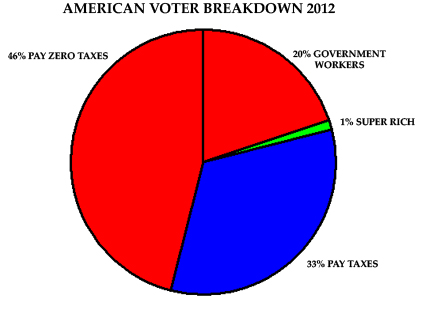
When the government worker slice of the pie gets bigger than the private worker slice, look out. (From the California Public Policy Center)
You have a family of seven, with another on the way. You feed your family on the milk from your single cow. As your family grows, that milk is leaving you hungrier and hungrier and you’re starting to dream of thick, juicy steaks.
Do you kill the cow and eat well this week, knowing it dooms your family next week?
This is a trick question. Of course, you don’t kill the cow. It may hurt now to go without the meat, but there’s a mathematical certainty of doom once the milk stops flowing. It’s really a trick question: the trick answer is, why are you relying on the cow? Why aren’t you and your oldest kids doing some work too? That cow is eventually going to die, leaving you with no food at all, not even milk.
We cannot rely on a shrinking tax base of employed—the rich and the middle-class—to pay for the growing population of government workers1, subsidized workers, and an increasingly wealthy underclass.
Nor can we start killing them by taking their savings and property to pay for government programs. It might make a tasty steak once, but when that steak is gone there’s nothing to replace it. Who will want to make money (and thus pay their milk in taxes) when even the money they get to keep ends up on the table? Who are you going to sell to when potential buyers know you’ll just take it back when your resources run dry next year?
Doom is a mathematical certainty when you kill the cow.
- January 22, 2012: The Parable of the Mexican Farmer
-

Is Apple sending jobs overseas just to be spiteful?
“Corporations ship jobs overseas just to shave a couple of cents off of the price of their widgets. But that’s a false dichotomy, because these corporations have so much money that they could afford to just shave the price off anyway and keep those jobs in America.”
Sound familiar? It’s pretty much what Betsey Stevenson, former chief economist at the Labor Department, says in the New York Times today:
“Companies once felt an obligation to support American workers, even when it wasn’t the best financial choice,” said Betsey Stevenson, the chief economist at the Labor Department until last September. “That’s disappeared. Profits and efficiency have trumped generosity.”
It’s a bit contradictory when you put both of those thoughts together in the same paragraph—that companies ship overseas to cut costs, but that they could afford to cut costs anyway. And yet there’s a sense that it’s true. Let’s bring it a little closer to you or me to see why. Pretend, for the moment, that you have so much money you almost don’t know what to do with it.1 But, you still need to eat. You need vegetables. You could buy your vegetables from local farmers; or you could fly to Mexico and buy your vegetables there. They’re cheap enough in Mexico that it pays for the immediate cost of flying there: your total dollars paid is less.
Would you do it?
Most likely not. The money doesn’t matter to you, but the trouble does, and it’s a lot more trouble and time-consuming to go to Mexico whenever you need more vegetables than it is to pay a higher price for vegetables in your home town.
Now, let’s add a couple of wrinkles that businesses face: whenever you buy vegetables in your home town, you have to spend more time filling out forms than it would take to fly to Mexico and back. Further, once you buy from any particular farmer, you have a relationship with that farmer that you cannot break. The law requires you to buy from that farmer. Even if you find a farmer who grows better-tasting vegetables, you are still required to buy vegetables from the first farmer. You are required by law to visit him, to negotiate with him, and to pay him, for vegetables that you no longer want. And if you don’t use them, you have to find a way to dispose of them—which will require even more paperwork.
Imagine that: a revenue neutral simple tax would add 20% of all taxes right back into the economy. Or, if you’re a Democrat: you could raise tax revenue by 20% on average, and no one would care because they’re not paying any more!
↑
broken windows
- The Broken Window Fallacy
- “What is the broken window fallacy?”
- DC Votes: Laundering votes and money
- As government programs grow, so does the number of government employees who will never support reform.
- John Stossel’s Broken Window Fallacy: John Stossel
- “It’s a government policy where you don’t see the victims. Government spending reshuffles jobs, it doesn’t create them.”
- Punishing low-tax states
- An Internet sales tax that looks at the customer’s state instead of the seller’s state punishes states with low sales taxes and inhibits competition.
- Simple, obvious, and unobstructive: minimize the value-minus of taxes
- There is no value-added in taxes, but we can minimize the loss of value.
- Zeno’s motorcar
- Automobiles are awesome machines. But sometimes it seems as though they’re stuck twenty years in the past.
lobbyists
- Beltway Hustle: Google Quickly Gaining on Microsoft in D.C. Lobbying Spending: Kara Swisher
- “While Microsoft has needed all the help it could hire in Washington, D.C., after its antitrust debacle many years ago, Google is quickly catching up to it as a tech power to be reckoned with in the nation’s capital.”
- Google goes to Washington: Andrew McLaughlin at Google
- “It seems that policymaking and regulatory activity in Washington, D.C. affect Google and our users more every day. It’s important to be involved—to participate in the policy process and contribute to the debates that inform it. So we’ve opened up a shop there. The first member of our Washington team is Alan Davidson, a veteran thinker and advocate for issues we care about.”
- League of Women Voters Chapter Pres Resigns In Protest of Anti-Scott Brown Ad: William A. Jacobson at Legal Insurrection
- “Putting aside what one thinks of the ad’s substance, the ad signaled a complete disregard for the League’s political neutrality. In fact, the League long ago lost its neutrality, having made a national Board decision to engage in issue advocacy, but the public perception lived on.”
- Microsoft’s D.C. lobbying sank Google-Yahoo deal, Jerry Yang: Declan McCullagh
- “In theory, antitrust law helps foster competition. In reality, politically connected companies sometimes use it to bludgeon competitors and boost their own bottom line, as soon-to-be former Yahoo CEO Jerry Yang learned the hard way.”
speeding laws
- Speed limit at Wikipedia
- “As of 2008, 52% of the German autobahns have only advisory limits, 15% have temporary speed limits due to weather or traffic conditions and 33% have permanent speed limits. The length of speed-unrestricted autobahns slowly expanded after the opening of the East German borders in November 1989.”
- Texas House OKs 85-mph speed limit, would be nation’s highest: Jim Forsyth
- “Gary Biller, executive director of the Wisconsin-based National Motorists Association, said higher speed limits are perfectly reasonable given the good quality of today's highway construction.” (Hat tip to Eric Peters at National Motorists blog)
More broken windows
- Proposition B opponents: city salaries grow from magic beans
- Where do they think city worker salaries come from?
- Growing from the ruins of a rotting industry
- There’s something incredibly liberating about kicking the ass of a moribund industry.
- Paul Krugman & President Obama furiously fix economy
- Improving Mexico’s economy: “Fast and Furious” gun-running plan from New York Times economist Paul Krugman.
- Broken windows at the ATM
- I had my own personal broken window this week. Not a big fan of obstructing progress for make-work jobs.
More government lobbying
- In unrelated news, Apple hires Lisa Jackson
- Apple recently was summoned to appear before congress to describe how congress’s tax laws work. In unrelated news, Apple hired former EPA administrator Lisa Jackson to report directly to CEO Tim Cook.
- Los Angeles police try to shut down newspaper
- We should be more than worried when the state tries to shut down free speech by laundering money through a third party.
- DC Votes: Laundering votes and money
- As government programs grow, so does the number of government employees who will never support reform.
More government programs
- Growth does not pay for itself
- Growth that doesn’t pay for itself is cancerous growth. It isn’t the growth of population that gets more expensive, but the expanding grasp of government.
- Why don’t taxes go down when population goes up?
- The left says that government can better take advantage of economies of scale. So why don’t they lower taxes when population rises?
- The plexiglass highway
- Government bureaucracies can cause anything to fail, even progress.
- Please take pity on this health care orphan
- Yeah, because of a massive regulatory bill that kills job creation, young adults don’t have jobs, and because they don’t have jobs, they don’t have health insurance.
More regulations
- How the left bribes big business
- There’s a reason giant corporations and the biggest conglomerates are almost all donors to Democrats if they prefer one party over another. The left’s policies kill their upstart competitors. Big government hurts small businesses far more than it hurts big businesses.
- The Star Trek Experience: Stanley Jaffe was right
- In 1992, Paramount executive Stanley Jaffe single-handedly killed an audacious, innovative, one-in-a-million Las Vegas attraction. Because that’s what he was hired to do.
- The Parable of the Mexican Farmer
- Betsey Stevenson’s an example of why it’s so hard to create middle-class jobs, Jared Bernstein.
- California threatens Amazon, kills affiliate programs
- By this time, California had to know that its new law would not bring in new tax revenue. The tax headaches aren’t worth the trouble of maintaining affiliate programs. The only reason to pass the law was to kill affiliate programs at places like Amazon and Overstock. I don’t understand; what is it about affiliate programs that states don’t like?
- Zeno’s motorcar
- Automobiles are awesome machines. But sometimes it seems as though they’re stuck twenty years in the past.


